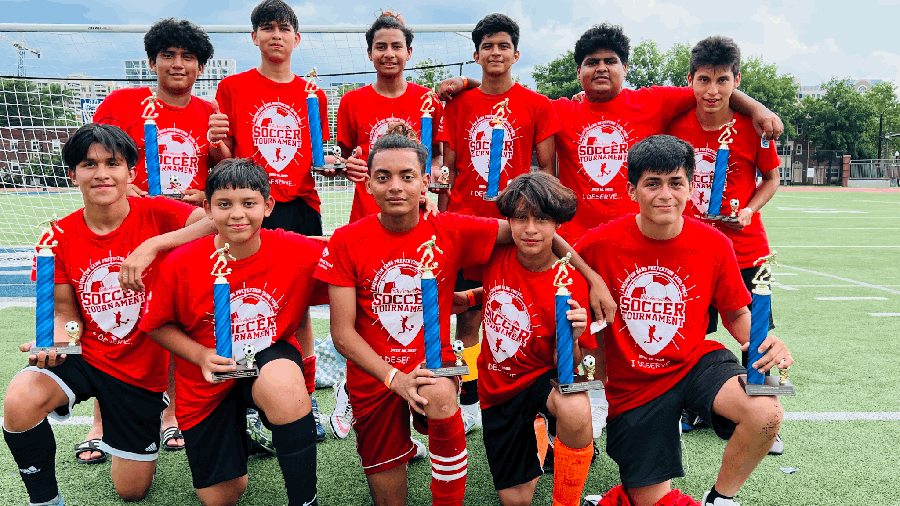Mentoring programs for youth can have a profound impact on the lives of young people. These programs connect young people with experienced adults who provide guidance, support, and encouragement. Mentoring programs can benefit young people in a number of ways, including:
Improved Academic Performance
Studies have shown that young people who participate in mentoring programs are more likely to succeed in school. They are more likely to have higher grades, better attendance, and higher graduation rates.
Mentors can help young people by providing the following:
- Academic support: Offering assistance with homework, study skills, and test preparation.
- Motivation and encouragement: Instilling a love of learning and providing positive reinforcement for academic efforts.
- Advocacy: Collaborating with teachers and parents to support the young person’s academic success.
Increased Self-esteem and Confidence
Mentoring programs can help young people develop a positive self-image and increase their confidence. Mentors can provide young people with the support and encouragement they need to believe in themselves and their abilities.
Mentors can support this growth by:
- Offering positive reinforcement and encouragement: Recognizing the young person’s strengths, acknowledging their accomplishments, and celebrating their progress.
- Providing a safe space for self-expression: Allowing the young person to openly discuss their feelings, challenges, and aspirations without judgement.
- Modeling positive values and behaviors: Demonstrating respectful communication, responsible decision-making, and a growth mindset.
Reduced Risk of Risky Behaviours
A study by the Harvard Kennedy School found that youth in mentoring programs were less likely to engage in risky behaviours, such as substance abuse, delinquency, and violence.
Mentors can help young people avoid risky behaviours by:
- Providing positive role models: Offering an alternative to negative influences and demonstrating healthy coping mechanisms.
- Teaching life skills: Helping young people develop skills like decision-making, problem-solving, and conflict resolution to navigate challenging situations constructively.
- Promoting healthy choices: Encouraging participation in positive activities, setting clear expectations, and offering guidance on navigating peer pressure.
Improved Social Skills
An NCBI research indicates that young people in mentoring programs develop stronger social skills, including communication, relationship building, and conflict resolution.
Mentors can contribute to this development by:
- Engaging in meaningful conversations: Talking openly and actively listening to the young person, fostering open communication, and modeling effective communication skills.
- Participating in social activities: Engaging in joint activities that involve interaction with others, providing opportunities to practise social skills in real-world settings.
- Encouraging collaboration and teamwork: Guiding the young person to participate in group activities, fostering cooperation and conflict resolution skills.
Enhanced Career Development
Another study shows that mentoring programs can connect young people to career opportunities and help them develop necessary skills.
Mentors can support career development by:
- Sharing their own career experiences: Providing insights into different career paths, offering advice on navigating the workplace, and fostering career exploration.
- Helping with resume and cover letter writing: Providing guidance and feedback on crafting professional documents that highlight the young person’s skills and experiences.
- Connecting young people with professional networks: Introducing them to contacts who can offer career advice, informational interviews, or potential job opportunities.
How Mentoring Programs Work
Mentoring programs connect young people with experienced adults who serve as guides, supporters, and encouragers. This connection is fostered through a structured process that typically involves the following steps:
1. Matching:
To foster successful mentoring relationships, programs meticulously match young people (“mentees”) with suitable mentors. This matching process considers various factors, including shared interests, backgrounds, goals, and personalities.
Such careful matching is crucial as it increases the likelihood of both parties engaging effectively and experiencing mutual benefit from the relationship.
2. Training:
To ensure a successful mentoring experience, both mentors and mentees often participate in training sessions. Mentors receive guidance on effective communication, establishing clear boundaries, and setting realistic expectations for the relationship.
Mentees, on the other hand, may receive training on setting personal goals, effectively communicating with their mentor, and maximising the benefits they can gain from the program.
3. Meeting:
Mentors and mentees typically meet regularly, either in person or virtually, depending on the program’s format and individual preferences. The frequency and duration of these meetings can vary, with sessions typically occurring once a week or twice a month, lasting for an hour or so.
These meetings provide valuable opportunities for conversation, engaging in activities together, and ultimately, building a strong bond between the mentor and mentee.
4. Activities and Goals:
Many mentoring programs go beyond just conversation; they encourage mentors and mentees to engage in activities that align with their shared interests or the mentee’s goals. This can take many forms, such as volunteering together, attending cultural events, playing games, or working on a project collaboratively.
Additionally, setting goals, whether they are academic, personal, or career-oriented, can provide a framework for the mentoring relationship and allow both individuals to track their progress over time.
5. Ongoing Support:
Recognizing the importance of ongoing support, program staff regularly check in with both mentors and mentees. They offer valuable resources, workshops, and even conflict resolution assistance if needed.
This ongoing communication ensures mentors feel supported and equipped to effectively navigate their roles, fostering a successful and impactful mentoring experience for everyone involved.
Wrapping Up
Mentoring programs for youth offer a powerful and multifaceted solution to empower young people and foster their potential. By providing guidance, support, and encouragement, mentors make a significant impact on various aspects of a young person’s life. This impact leads to improved academic performance, enhanced self-esteem, reduced risks of negative behaviours, stronger social skills, and brighter career prospects.
For more details, contact the Capital Youth Empowerment Program.


